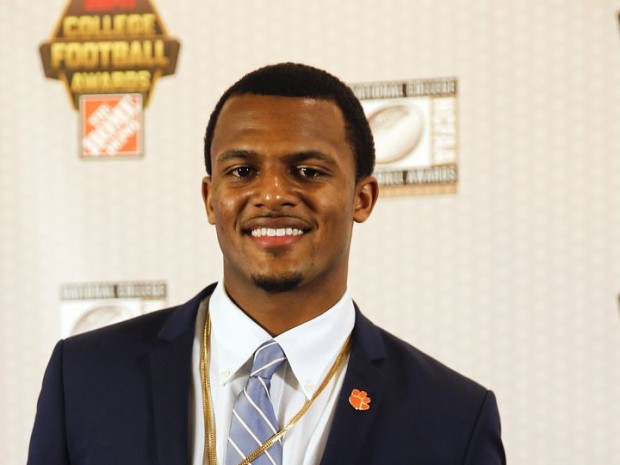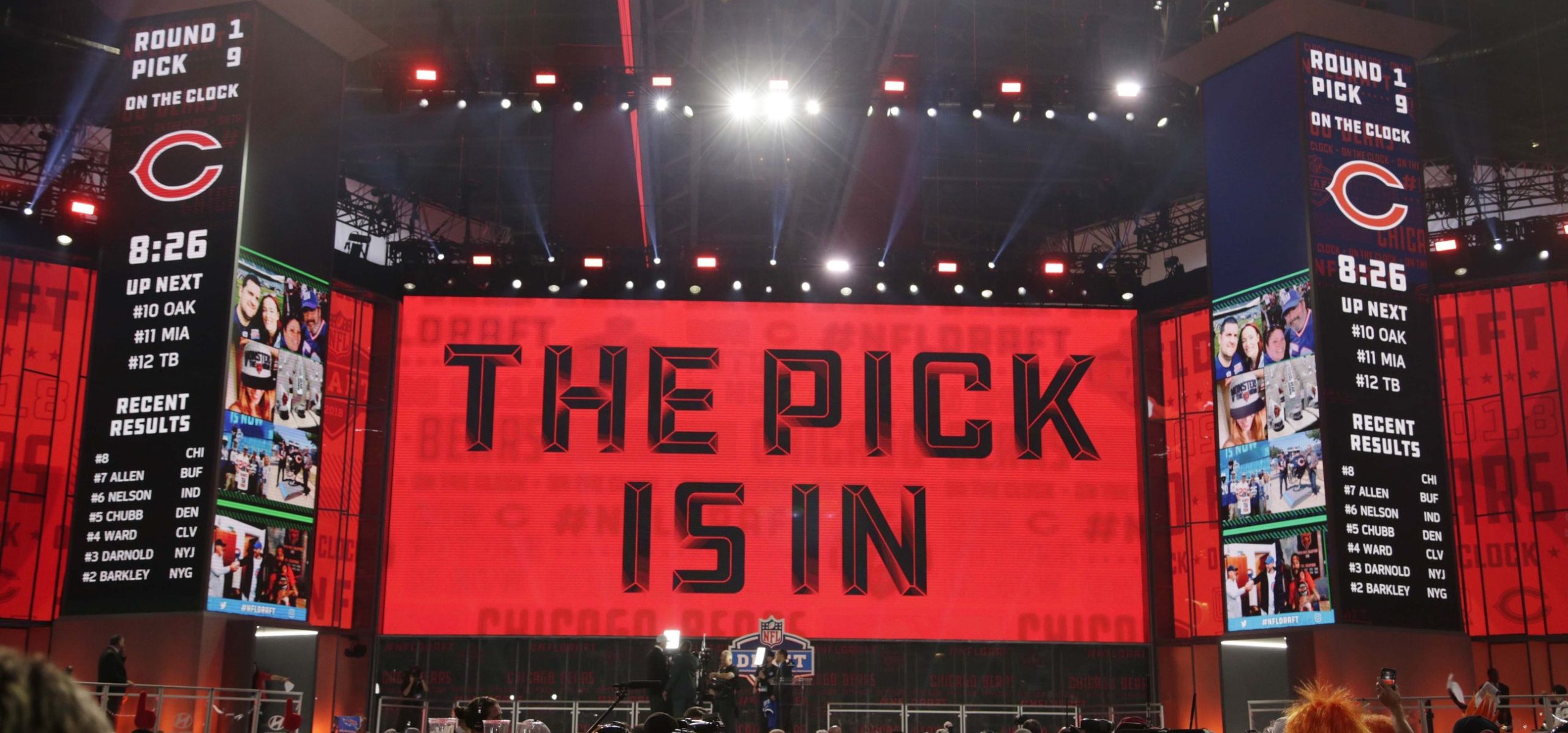Just how significant are the season-ending Home Depot College Football Awards, handed out Thursday night at the newly-built College Football Hall of Fame in Atlanta?
In many ways, a two-part answer applies.
First, these awards are very important to the players, coaches and fans at the schools involved. A lot of time and money are invested in success on Saturdays. The names of college football legends — Dick Butkus, Jim Thorpe, Davey O’Brien, Doak Walker, and many others — are attached to awards in a sport which reveres history as a matter of culture (though not necessarily practice).
College football is hard-wired to honor the past in a connected manner, knitting together generations of alumni and on-field stars in ways which just don’t surface as often in professional sports.
Therefore, these awards matter. They carry considerable historical resonance for the people who care most deeply about the sport.
The second part of the answer is that beyond the realm of the personal — the players and the coaches at the center of the action — the casual American sports fan is not going to remember too much about these awards unless a remarkable snub occurs.
Since the Heisman Trophy gains so much attention during the regular season, these other awards — especially for interior linemen and other less glamorous positions — don’t sizzle. They’re important on a local level, but don’t carry national weight. Only the award handed out Saturday at the Downtown Athletic Club in New York has a coast-to-coast hold on the American sporting imagination.
With this prelude now over, did any real news emerge from the latest edition of the Home Depot College Football Awards?
Yes — in one specific respect.
*
This past Monday, the Heisman Trophy finalists were announced. The general principle of inviting only those candidates with a reasonable chance of winning (easy enough to recognize, but not nailed down as a matter of precise vote totals or percentages, if you look at item No. 4 in this link at the Heisman Trust’s website) kept Oklahoma quarterback Baker Mayfield at home. He won’t be on hand for Saturday’s ceremony.
What does this have to do with Thursday night’s awards? Simple — Mayfield once again lost out to Clemson’s Deshaun Watson.
Mayfield watched Watson claim the Davey O’Brien Award, given to the best quarterback in college football for the season. The award — on the merits — is entirely deserved by Watson. It’s not an appalling snub. (Mayfield being left out of New York for the Heisman ceremony is the appalling snub.)
However, this means Mayfield now has two reasons, not just one, to enter the College Football Playoff semifinal against Clemson with a chip on his shoulder. The history of college football is replete with examples of snubbed players dominating award-winning players in bowl games. The most famous example from this century? Vince Young and Texas soared past Reggie Bush and USC in the 2006 Rose Bowl. Bush won the 2005 Heisman but played a nerve-addled game; Young played the game of his life and turned his Heisman disappointment into national championship glory.
Oklahoma has more emotional fuel to burn after these awards. It doesn’t mean the Sooners have a better chance of winning; it merely means that the storylines for the Orange Bowl contain even stronger emotional components.
*
Here are the rest of the awards from Thursday night:
The Maxwell Award — given to the college football player of the year — went to Alabama running back Derrick Henry, a possible preview of Saturday’s Heisman vote. Henry beat out the Heisman finalists, Christian McCaffrey of Stanford and the aforementioned Mr. Watson of Clemson.
The Chuck Bednarik Award is given to the defensive player of the year. Bednarik, a college star at the University of Pennsylvania, became an iconic NFL player with the Philadelphia Eagles and an unforgettable personality on NFL Films programs after his retirement. He died earlier this year just before turning 90 years old, so this award carries with it an extra bit of poignancy in 2015.
The winner? How utterly appropriate that a player on a Philadelphia team — linebacker Tyler Matakevich of Temple — took home the Bednarik this year.
The Fred Biletnikoff Award — given to the nation’s best receiver — went to Corey Coleman of Baylor.
The Lou Groza Award, given to the top placekicker, went to UCLA’s Ka’imi Fairbairn, who drilled a 60-yard field goal on a Thursday night ESPN game against California in October.
The Ray Guy Award, given to the best punter, went to Tom Hackett of Utah.
The Outland Trophy, handed to the best interior lineman in the country, was claimed by Joshua Garrett of Stanford, who helped Christian McCaffrey become an electrifying offensive force for the Cardinal.
The Jim Thorpe Award, honoring the best defensive back in the land, went to Desmond King of Iowa.
The Doak Walker, given to the nation’s best running back, went to Derrick Henry, who added to his trophy case even more when he was given the Walter Camp Award, also reserved for the player of the year in FBS college football.
Hunter Henry of Arkansas won the John Mackey Award as the country’s best tight end.
Ryen Kelly of Alabama won the Dave Rimington Trophy as the nation’s best center.
Matakevich snagged a second award when he won the Bronko Nagurski Trophy as the defensive player of the year.
Ty Darlington of Oklahoma won the Danny Wuerffel Trophy for outstanding community service.
Carl Nassib of Penn State won the Lombardi Award as the top lineman in the United States.
Jaylon Smith won the Butkus Award as the nation’s best linebacker.
Among coaches, Oklahoma offensive coordinator Lincoln Riley (earlier in the week) won the Frank Broyles Award as the nation’s best assistant coach.
The Home Depot Coach of the Year Award went to Dabo Swinney of Clemson, and rightly so, given that he was the only coach to guide an FBS team to a perfect record in 2015.






